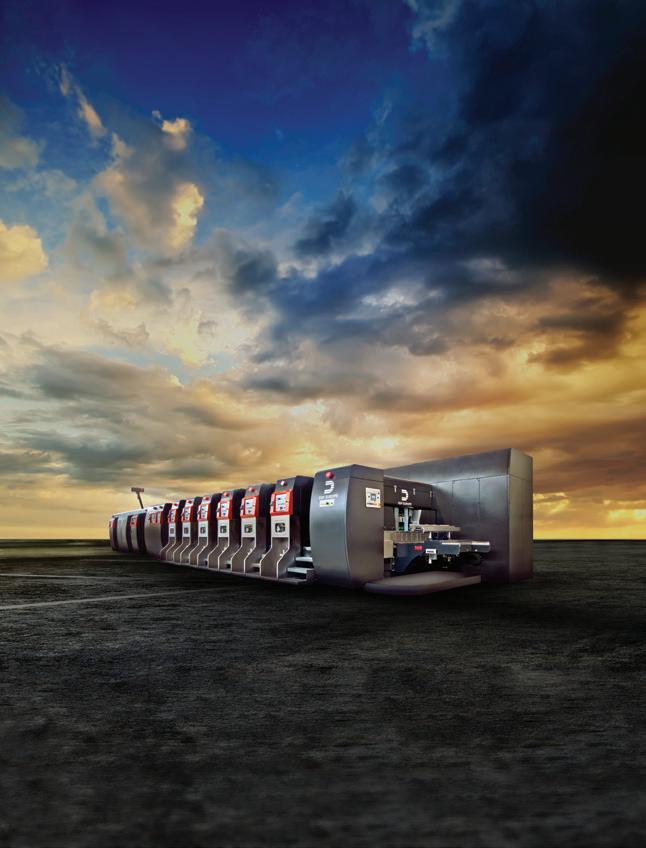Legislative Report
Jobs, Taxes, and Minimum Wage: The Manufacturing Sector’s Looming Setback? BY ERIC ELGIN
T
he independent boxmaker doesn’t have a lot to cheer about given the news out of Washington, D.C., these past two months. While I like to be optimisitic about future prospects, the policy agenda of the Biden White House and Democraticcontrolled Congress are providing what I consider to be a challenging outlook for the business community in the months ahead. (See also “New Administration, New Possibilities,” page 38.) Already we saw on the president’s first day in office the pen-stroke cancellation of the XL Pipeline, resulting in the direct loss of more than 11,000 well-paying union jobs in pipeline construction and supporting industries. In addition to this executive order on the XL, the president has also put a moratorium on all new oil and gas leases on federal lands, a move that the American Petroleum Institute said will cost upward of 1 million unemployed. Those of you who may have attended our annual Washington Fly-Ins in the past might remember our industry’s collective advocacy of the XL Pipeline, specifically, and of greater energy independence generally in our visits with congressional representatives and senators. We argued then, and it’s just as true now, that a healthy manufacturing sector—and a healthy box business—cannot survive without abundant and reliable sources of competitively priced energy. Somehow, our president and his allies in Congress have missed the point that, as
10
BOXSCORE March/April 2021
we are able to transition toward alternative sources of energy, fossil fuels will still be necessary for the efficient propulsion of our economy. And even as our corrugated and paperboard industries applaud advances in sustainability, as we produce a renewable and sustainable packaging product, we also have to remain competitive as an industry. And competitive energy is essential to that goal. Another area of concern to us is the potential reversal of the tax cuts enacted in the 2017 Tax Cuts and Jobs Act. In 2018, when this legislation took effect, the stimulus effect of lower overall individual and corporate rates, plus the provisions for accelerated depreciation, boosted the overall economy generally and our box business in particular. For example, in August 2018, box shipments reached 35.5 billion square feet, the highest permonth level since the Great Recession of 2008–2009. Containerboard mills ran at 97% capacity, and the Institute for Supply Management’s monthly purchasing index topped 60 for two months in a row, according to the September 2018 edition of Scoring Boxes. Thus, we see the effects that lower tax rates can help achieve. Now, the Biden administration has floated an overhaul of the 2017 law, which will increase corporate rates to 28% from their previous low of 21%. In addition to these corporate rate changes, the administration’s proposals will also raise marginal tax rates for high-income individuals. Mitch Klingher, CPA, of
Klingher-Nadler breaks this down in his excellent article on page 60 of this issue. Added to these new burdens on business is the likelihood of a national minimum wage of $15 per hour. Now I know that our industry in general pays starting wages in excess of this figure. According to AICC’s 2020 Salary, Hourly Wage & Benefit Survey, the average probationary rate for a forklift driver in a sheet plant is $17.62; for a flexo folder gluer operator, it’s $19.55. But there are many other positions, those requiring far fewer skills, that are paying in the $11–$12 range. Depending on the part of the country you’re in, your pay scales may be within the proposed minimum or dramatically below. If that’s the case, every business owner is forced to make the decisions that are likely to result in fewer jobs, not more. As I told writer Robert Bittner in our cover story, overall, I’m an optimistic person, and I do hope for the best. If the Biden administration can stay in the middle, I think that’ll be best for everyone. Yet a new administration cutting jobs right out of the blocks, raising taxes, and increasing the minimum wage does not bode well for a booming economy or the continued robustness of our business. Eric Elgin is owner of Oklahoma Interpak and chairman of AICC’s Government Affairs subcommittee. He can be reached at 918-687-1681 or eric@okinterpak.com.











